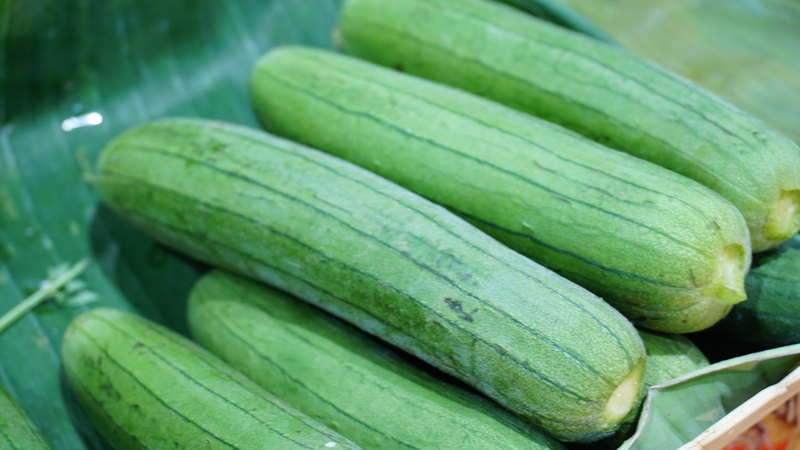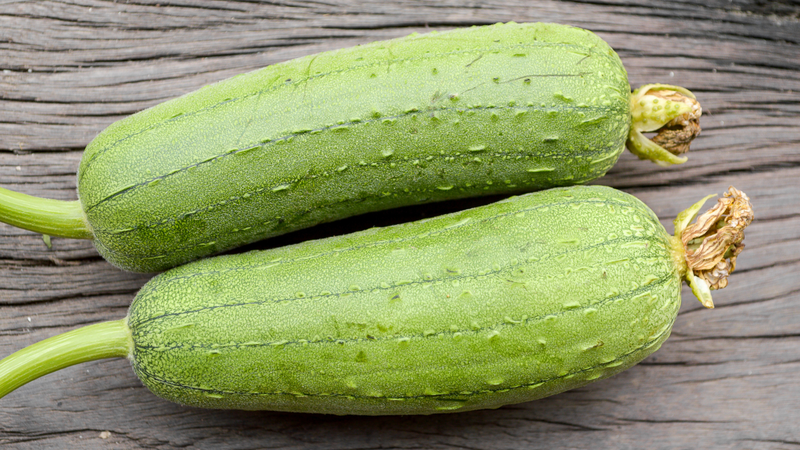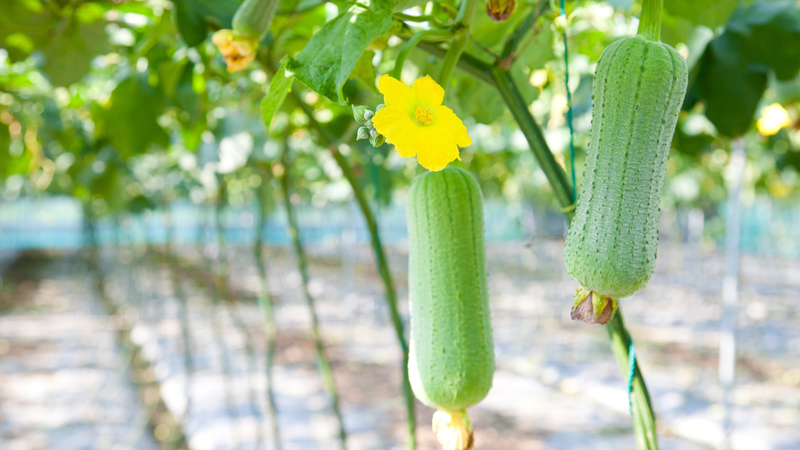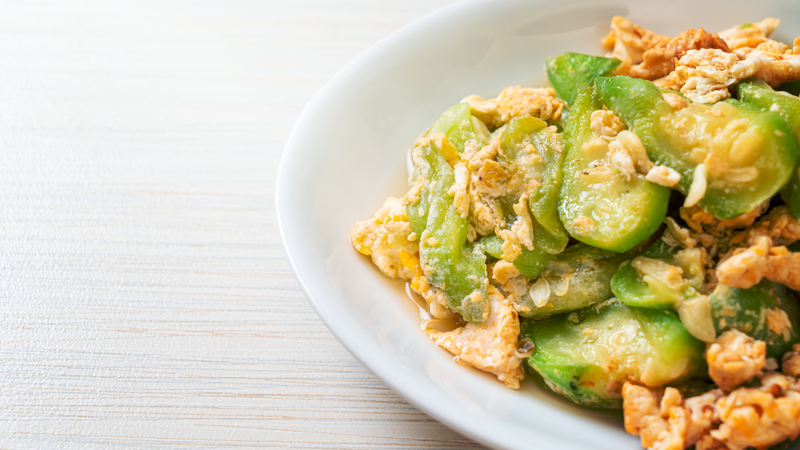Winter melon is a nutritious food and is a favorite in many dishes. However, not everyone is suitable to consume this food. Some people need to be careful when eating winter melon due to the possible unwanted effects on health. So who should not eat winter melon?
Overview of the nutritional value of luffa
Luffa is a nutritious vegetable, containing many important ingredients such as:
- Vitamin C: Strengthens the immune system, anti-oxidant.
- Fiber: Supports digestion, prevents constipation.
- Minerals: Including potassium, magnesium, and calcium, help maintain the functioning of the nervous system and muscles.
- Antioxidants: Help reduce inflammation and protect cells from free radicals.

Winter melon is a familiar food in Vietnamese meals.
In addition, winter melon is also considered a low-calorie food, suitable for those who want to lose weight or control their weight. However, not everyone can take advantage of the benefits of this food. For those who should not eat winter melon, consumption can cause serious health problems.
People who should not eat winter melon
Although winter melon is a nutritious food, there are some groups of people who need to limit or avoid eating this fruit to protect their health. Below is a list of specific cases:
People with diarrhea or digestive disorders
Winter melon contains a lot of fiber, which helps support digestion at a normal level. However, for people who are suffering from diarrhea or have digestive disorders, consuming winter melon can make the symptoms worse. High fiber intake can stimulate intestinal motility, leading to frequent bowel movements and dehydration.
People with Allergies to Winter Melon
Food allergies are a common problem for some people, and winter melon is no exception. People who are allergic to fruits and vegetables like winter melon may experience symptoms such as itching, rashes, or difficulty breathing after eating it. This is one of the typical cases of people who should not eat winter melon, and should avoid this food completely.

Who should not eat squash?
People with kidney disease
Sweet melon contains a significant amount of potassium, which can put a strain on the kidneys in people with chronic kidney disease or kidney failure. Consuming too much potassium can cause electrolyte imbalances, leading to the risk of complications such as irregular heartbeat or heart failure.
People with low blood pressure
Sweet melon has cooling properties and helps lower blood pressure. This is beneficial for people with high blood pressure, but not suitable for people with low blood pressure. If you eat too much of it, people with low blood pressure may feel dizzy, tired, or even faint.
People who are taking special medications
Some medications, such as diuretics or heart medications, can interact with ingredients in sweet melon. This is especially important for people who should not eat sweet melon while undergoing treatment for a serious medical condition. They should consult their doctor before using this food.
Health effects of winter melon: Benefits and limitations
In addition to the potential harms related to people who should not eat winter melon, this food still has the following benefits and limitations:
Benefits of eating winter melon:
- Supports digestion: The fiber in winter melon helps enhance digestive function and prevent constipation.
- Cooling and detoxifying: Winter melon is cool, helping to cool down on hot days or when the body is hot.
- Improve cardiovascular health: The high potassium content in winter melon helps regulate blood pressure and reduce the risk of cardiovascular diseases.
Limitations when eating winter melon:
- Excessive stimulation of digestion: For people with diarrhea or weak stomachs, winter melon can have the opposite effect.
- Side effects in people with kidney disease: The potassium and water content in winter melon may not be good for people with impaired kidney function.
- Allergy risk: Some people with sensitive skin may experience an allergic reaction when eating squash.

Before adding squash to your diet, consider your personal health status.
How to use bitter melon properly?
To maximize the benefits of bitter melon without causing harm, you should note the following:
- Choose fresh, clean bitter melon: Choose young bitter melons that are not wilted or crushed to ensure nutrition and hygiene.
- Eat in moderation: Although bitter melon is nutritious, you should not consume too much, especially for groups of people who should not eat bitter melon.
- Combine with other foods: Use bitter melon as part of a balanced diet, supplementing enough protein, vitamins, and other minerals.
- Consult your doctor: For people with underlying medical conditions, you should talk to your doctor before adding bitter melon to your menu.
For those who should not eat bitter melon, avoiding this food does not mean completely eliminating other vegetables and fruits from your diet. They can choose alternative foods with equivalent nutritional value, such as zucchini, tomatoes, or green leafy vegetables rich in vitamins and minerals.
In addition, it is important to note how to prepare luffa. Cooking thoroughly or combining it with other healthy foods can reduce some of the unwanted effects, making it safer for people with sensitive bodies to consume.

Although squash is nutritious, you should not consume too much.
Winter melon is a nutritious food that brings many health benefits if used properly. However, not everyone is suitable to consume this fruit. For those who should not eat winter melon, avoiding it is necessary to protect their health and prevent potential complications. Before adding winter melon to your menu, consider your personal health condition, consult your doctor if necessary, and always ensure a balanced, healthy diet. This will not only help you maximize the benefits of the food, but also protect your overall health in your daily life.





